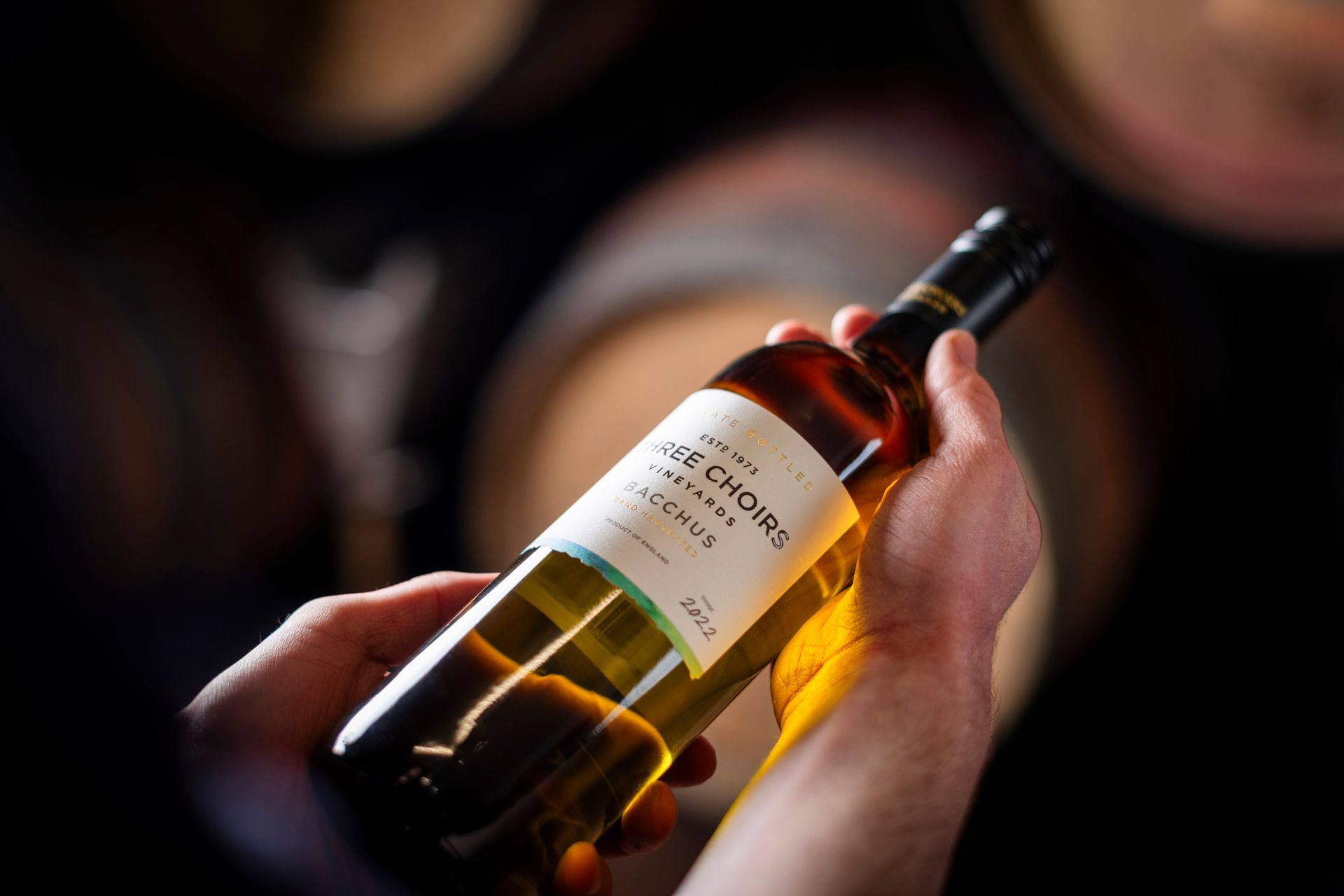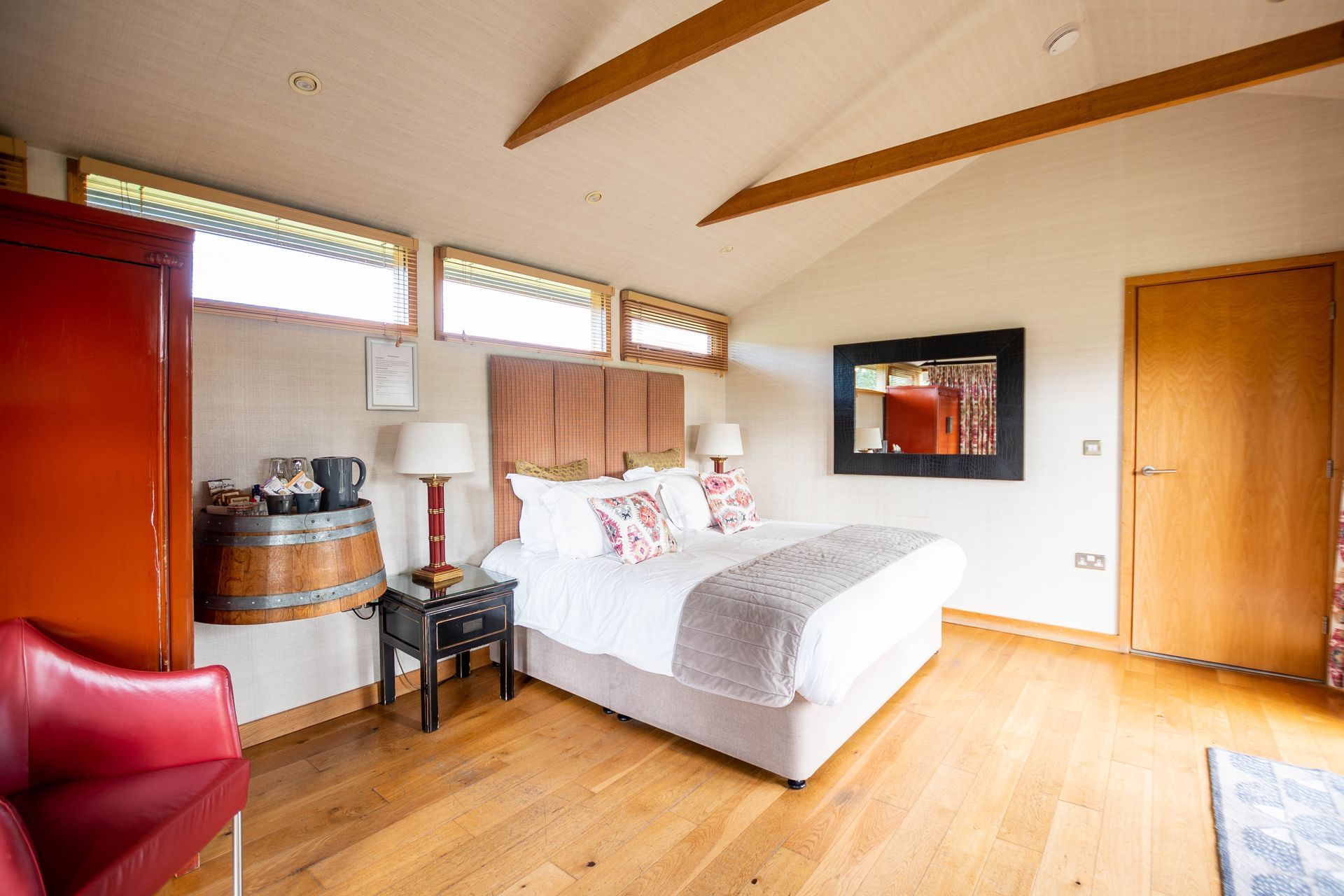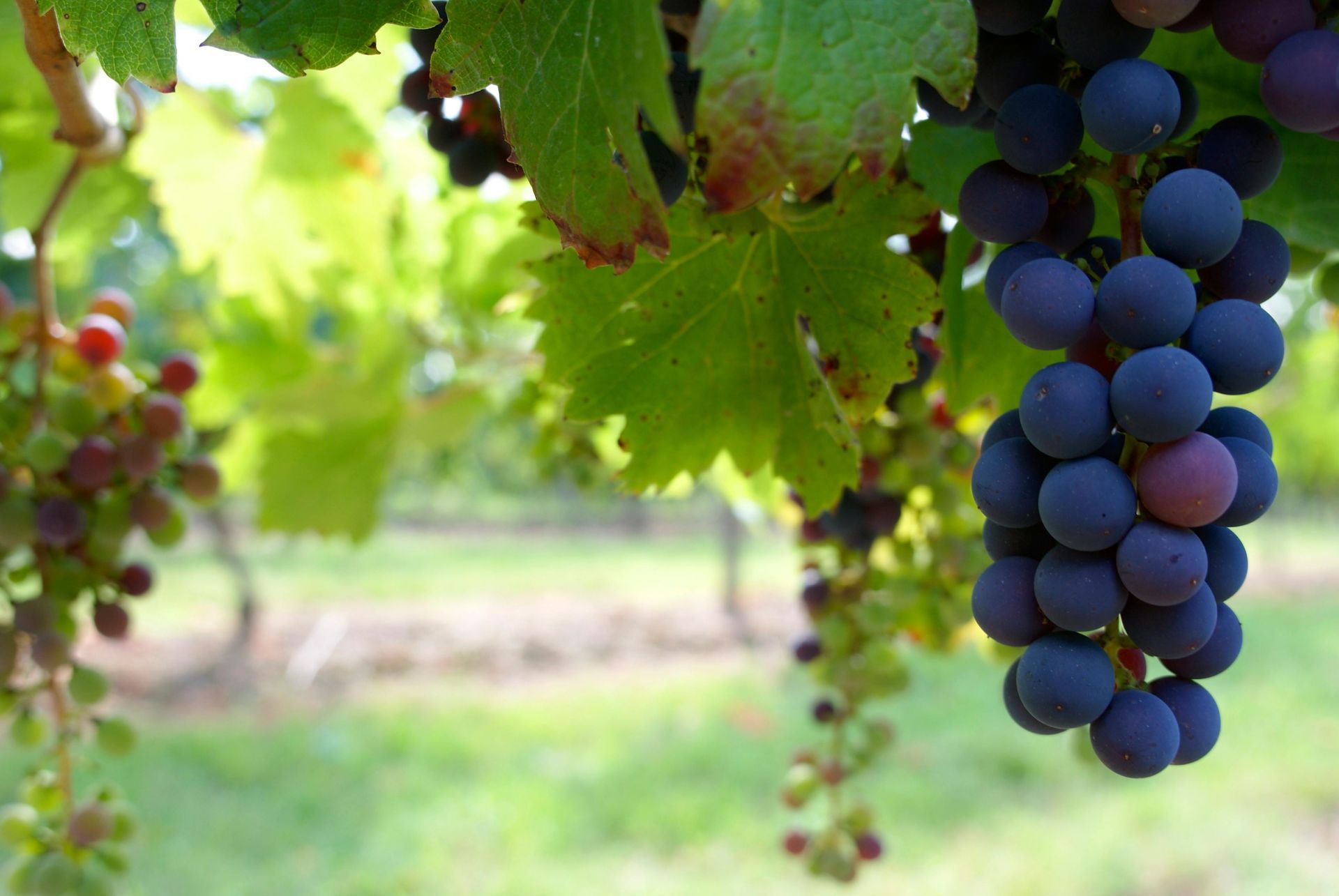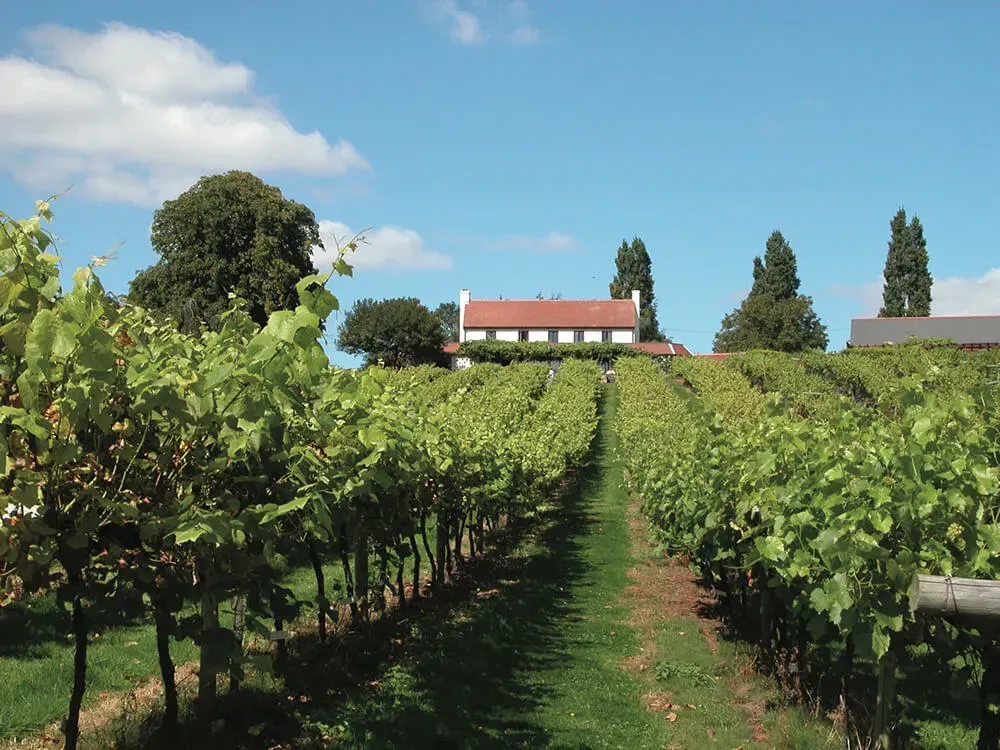A sustainable vineyard: Our commitment to the environment
Here at Three Choirs Vineyard, we are committed to being as sustainable as possible.
However, the vineyard isn’t organic. We do believe it’s not possible to be fully organic in this country, but we do limit our use of pesticides to the absolute minimum. We probably use about a quarter of what we are legally allowed to use.
One way we reduce our use of pesticides is by using foliar feeds made from seaweed extracts. Foliar feeds feed the vine directly through the leaf, allowing the vines to absorb essential elements quickly. The theory behind using these feeds is that, if we keep the vines healthy and strong, they will be better able to defend themselves from disease.
In the UK, the biggest risk to vines isn’t from insects, it is from mildew. Mildew can slow down the growth of the vines and reduce both the quantity and quality of the grapes. It can also weaken the plants and make them more vulnerable to disease or insects. Grapes like cold weather in winter and warm, dry weather in the summer. But in this country, we have a lot damp, warm weather, which causes mildew to thrive. If we have a year like we had in 2024, there can be a lot of disease, which impacts our harvest.
We don’t have any irrigation in the vineyard, so our water consumption is probably lower than you would expect for a business like ours. In fact, we don’t have a huge amount of water available, so we do have to be careful not to use too much. We use water sprays and pressure to clean out our tanks, which clean effectively using a lot less water than other cleaning methods.
Glass production and transport uses a lot of energy. This can have a really negative impact on the wine industry’s sustainability, so it is important to us to use the lightest weight glass we can for our bottles.
Thomas Shaw, managing director, said: “The problem is there’s a consumer reaction to the weight of a bottle. People pick up a light wine bottle and think it’s cheap, whereas we pick up a light bottle and say, ‘Isn’t that amazing?’”
Although the bottles for sparkling wine are always thicker and heavier – they have to be to take the pressure of the secondary fermentation which takes place in the bottle and causes the bubbles.
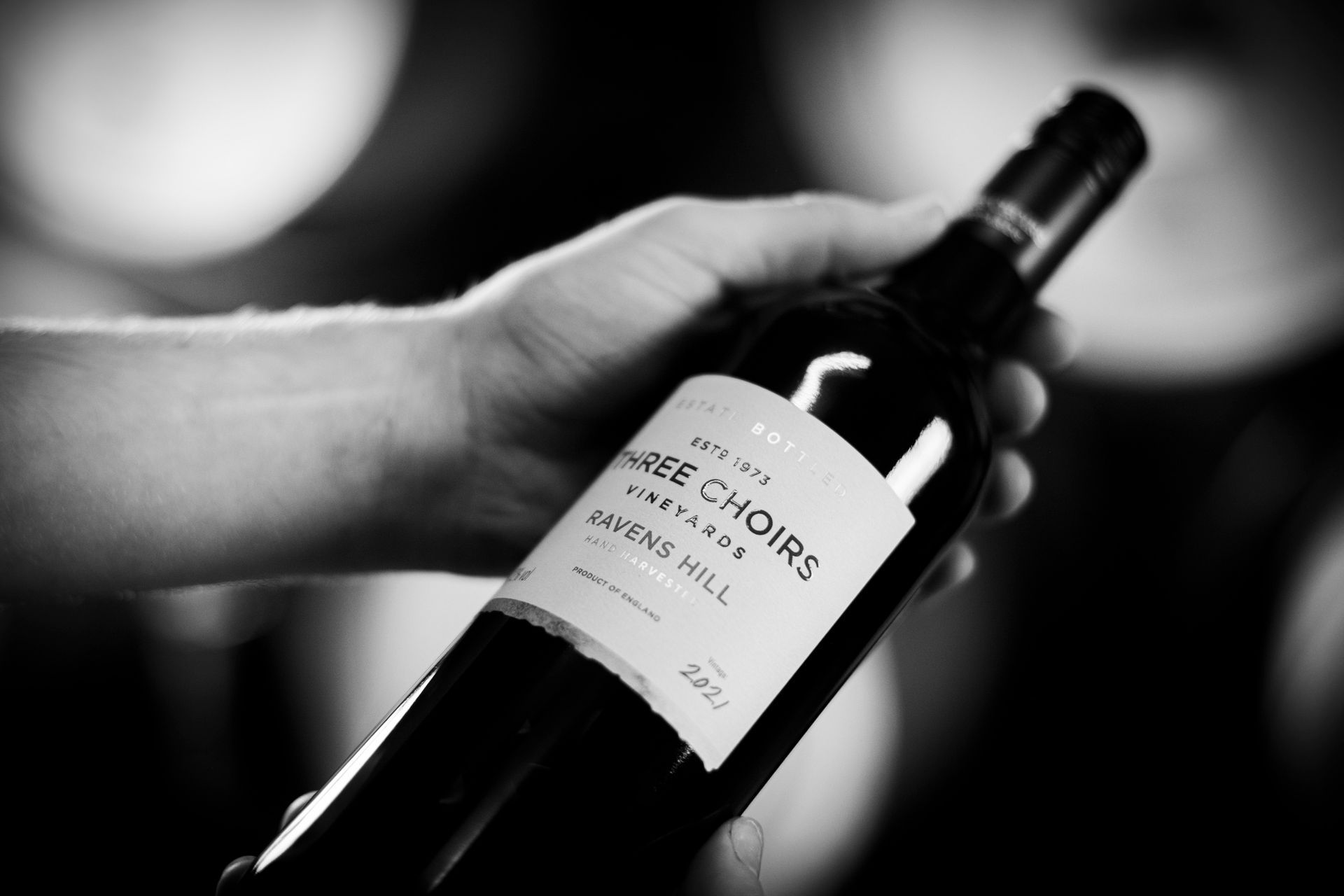
Three Choirs Vineyard use screw caps rather than cork. There are pros and cons of each, but we feel that screw caps are the best way forward and the best way to seal a bottle. Too much use of cork will kill the cork trees and the wildlife that live there. Metal screw caps can easily be recycled, although whether people do recycle them, we’re not sure! If you’re reading this, please do your bit and recycle your metal screw caps.
But sustainability isn’t just something we think about for the vineyard itself and the wine. It is something we consider for the entire business. All of our electricity across the vineyard from the vinery to the brasserie and our guest rooms is from 100% renewable, certified genuine green sources. And all food waste from the kitchen goes to a digester and is turned into electricity off-site.
We aim to avoid single use plastics wherever possible. We don’t have little plastic bottles in the bedrooms like you still see in many hotels. Instead, we use bigger refillable bottles of soap, shampoos and shower gels.
Most of our laundry is handled on site at Three Choirs, reducing the need for extra transportation to an external service. We launder items like towels, robes, and kitchen cloths in house. The only exception is our bed linen, which we outsource to a local company since we don’t have the facilities for ironing and pressing.
We have pumps on site, so our electricity usage is very low.
We recycle as much as we can – glass bottles, of course, but also waste cardboard, aluminium cans and plastic.
As a consequence of Three Choirs’ low use of chemicals, the vineyard is a haven for wildlife – from rabbits and badgers to woodpeckers. The five ponds on site attract a range of visitors from newts to dragonflies.
Thomas continued: “I think we are doing well compared to the industry as a whole. There’s a lot of talk of sustainability within the industry, but I think there’s also a lot of greenwashing – as there is in a lot of industries.”
Greenwashing is when a company or product is marketed as environmentally friendly, without making any meaningful changes. It can mean consumers end up buying from businesses who are good at PR rather than those which are making a genuine effort to be sustainable and reduce their environmental impact.
Thomas said: “It’s complicated and every business is different. But every business has to look and see what they’re wasting that they shouldn’t be. Look in the rubbish bin and you’ll get an idea of what you shouldn’t be using in the first place!”
He concluded: “We take sustainability seriously and we do as much as possible within the constraints of a business like ours – combining the wine making and the hospitality side of the business.”
More from our blog...


